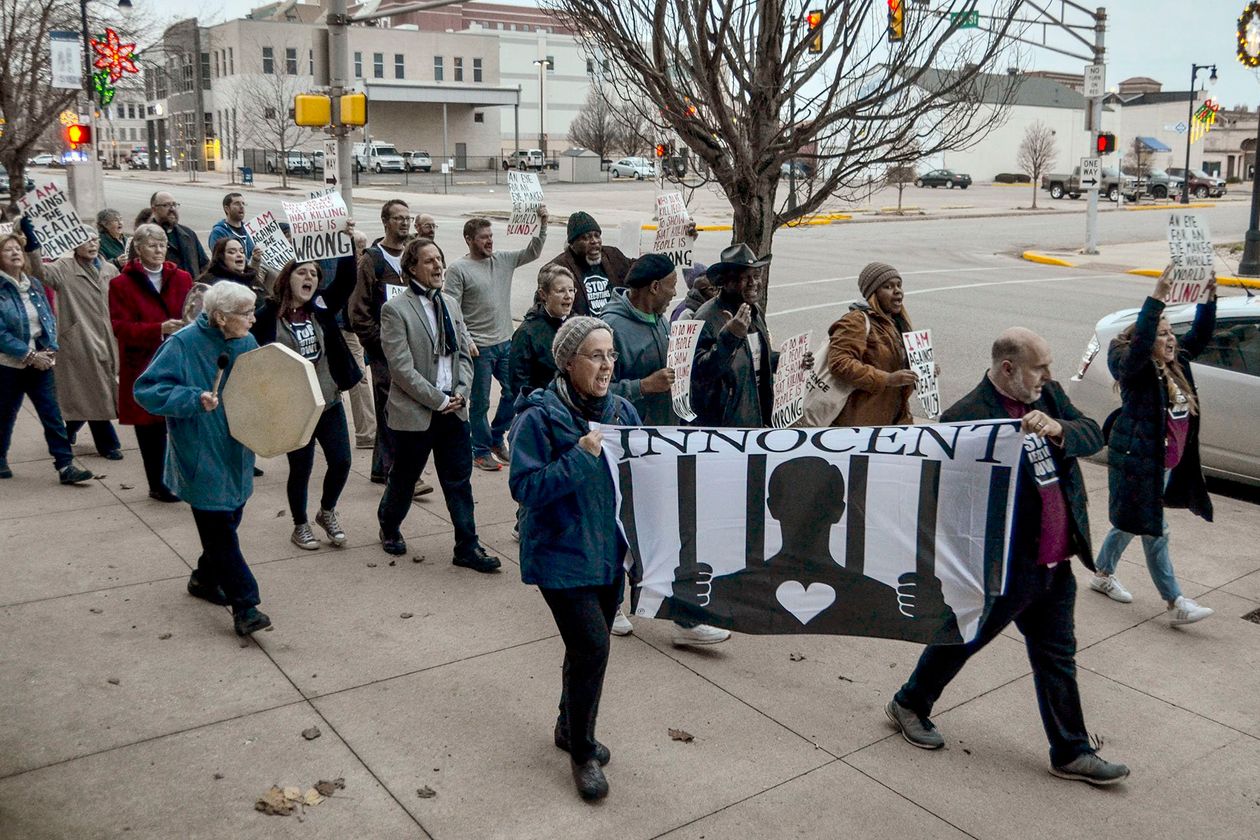The use of the death penalty across the United States remained near “historic lows” this year, a new report by the Death Penalty Information Center says.
“Capital punishment continued to wither across the United States in 2019, disappearing completely in some regions and significantly eroding in others,” the nonprofit organization that opposes the death penalty said.
This will be the fifth year in a row of fewer than 30 executions and 50 new death sentences, the center said. The 22 executions this year were the second fewest since 1991 and down slightly from last year’s 25.
Although several sentences are left to be decided before the end of the year, the center said it expects 2019 will end with 35 to 37 new death sentences imposed, a decline of more than 87% from the peak in 1994 through 1996, when death sentences averaged about 300 each year.
There has been public support for the decline
In a November letter to President Donald Trump, 175 murder victims’ families wrote the death penalty “does not solve crime.”
“It does not provide services for families like ours. It does not help solve the over 250,000 homicide cold cases in the United States. It exacerbates the trauma of losing a loved one and created yet another grieving family.”
the letter read.
The families called for the end of the death penalty following a July announcement by the federal government that the federal death penalty would be reinstated for the first time in nearly 20 years. Attorney General William Barr ordered five executions for December and January of “death-row inmates convicted of murdering, and in some cases torturing and raping, the most vulnerable in our society — children and the elderly.”
Many, including the 175 families, 65 former judges, and more than four dozen prosecutors and law enforcement officials disagreed with the decision, the center said.
Public opinion continues to support the decrease in capital punishment, the center says. A record 60% of Americans say they preferred life imprisonment over the death penalty as a better punishment for murder, the center said, citing a Gallup poll.
This was the first time the American majority preferred a life sentence, the center said.
Which states still sentence convicts to death
In 2019, more states began moving away from capital punishment. New Hampshire joined another 20 states in abolishing the death penalty.
In Pennsylvania, the only northeastern state that still allows convicts to be put to death, an abolition bill was vetoed by the state’s governor. The state’s senate failed to override the veto.
And in March, California Gov. Gavin Newsom announced he was halting all executions, citing racial discrimination and saying the death penalty was a “failure,” the center said.
The death penalty continued to grow “geographically isolated,” the center said. Of all the executions that took place, more than 90% of them took place in the South, the center said — 41% were in Texas alone.
The state executed seven prisoners, Tennessee and Georgia executed three each, Florida, two, and Missouri and Dakota each had one execution.
Alabama and Tennessee both passed laws expanding capital punishment, the center said, and Arkansas made it a felony to disclose the sources of execution drugs.
In total, 32 states have either abolished the death penalty or haven’t executed anyone in more than a decade, the center said.
Source: cnn.com




